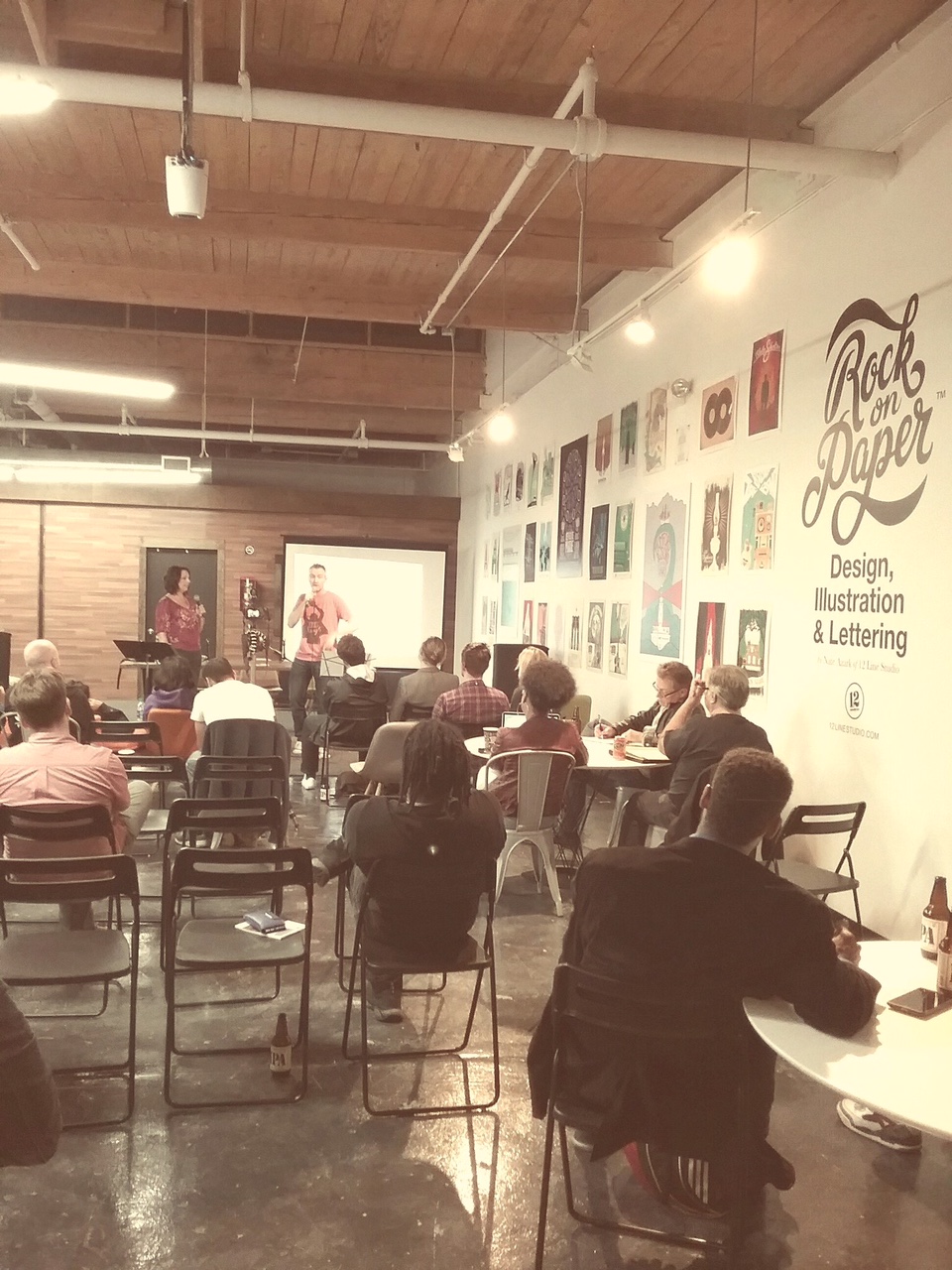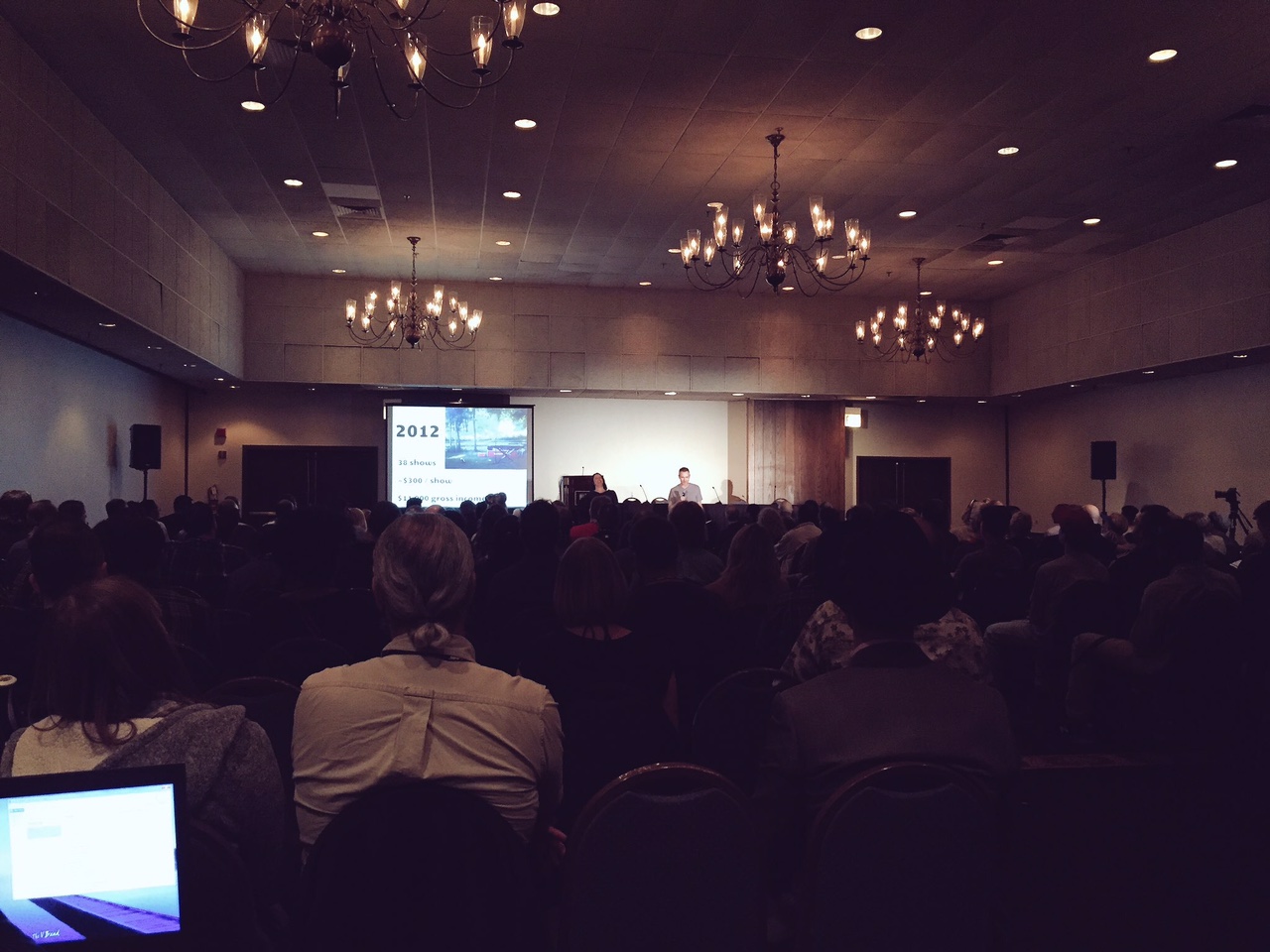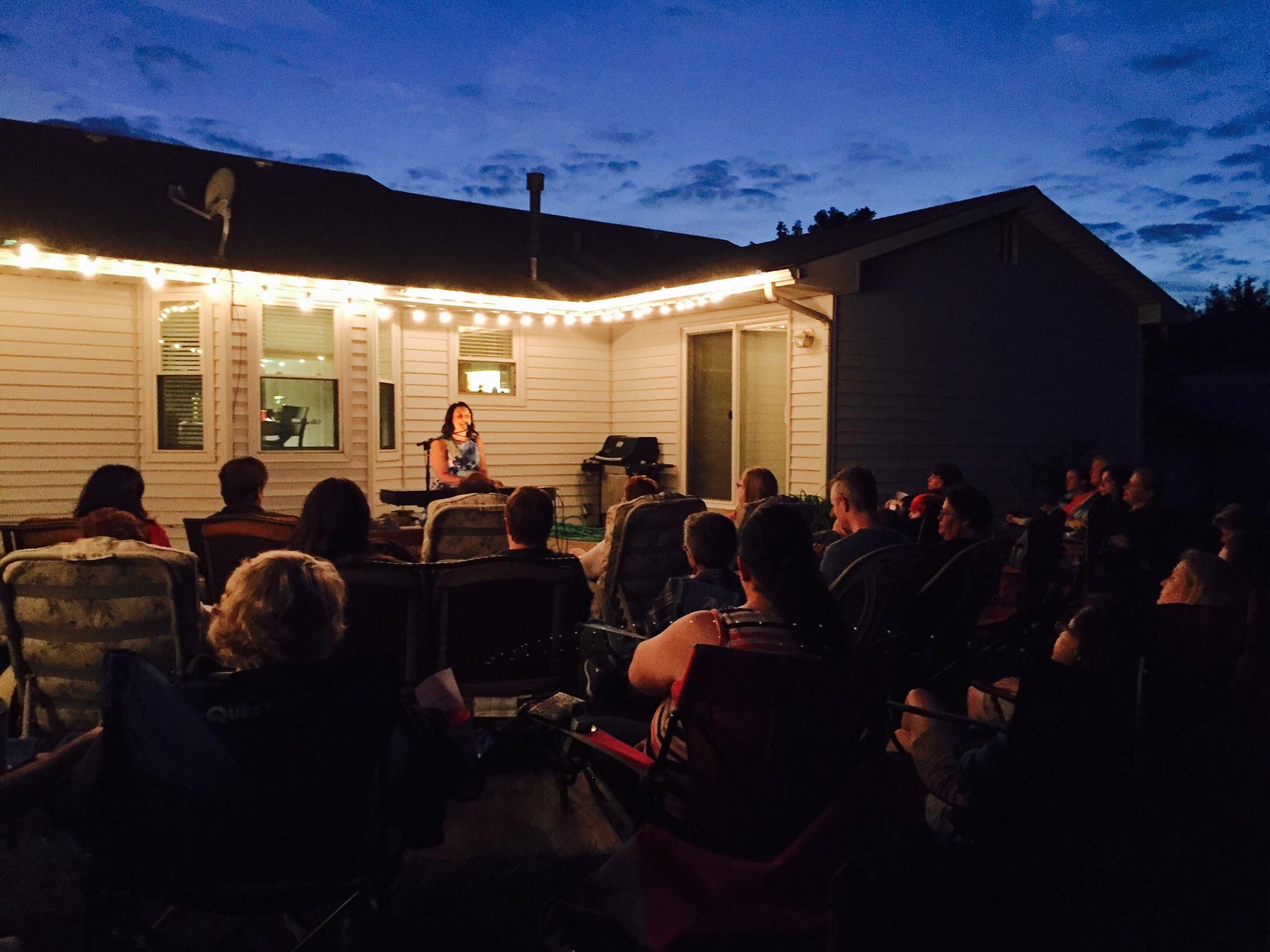This is weird and fun.
Category: Posts
doing stuff with Martin Atkins, nbd
One of the big pleasures for us over the last year has been building a friendship with the legendary Martin Atkins. Martin was first a huge influence on me when I was a kid — he played drums in like 5 of the bands I was the most into in my most formative years. And then he was again a huge influence, on both me and Shannon, when he put out his book Tour Smart nearly ten years ago, which is where we got a lot of our initial ideas for how to do all the DIY stuff that we’ve been doing since with Shannon’s career.
Martin asked us to do our house concert presentation for him at 2112, a music/tech/film incubator in Chicago where he has an office. And of course we said yes!

our CD Baby presentation went great!

CD Baby conference
Oh hi! Tour is … well, not done … but VERY NEARLY DONE. We’ve been on tour so long that I can’t remember ever doing anything else. It’s been this pretty much every night (i.e., amazing):

Just a quick note — Shannon and I have been asked to give a talk on how we do house concerts at the CD Baby DIY Musician Conference. It’s next week, in Chicago. If you’re an independent musician, you should go to this conference. It’s positive and it’s useful and the vibe is supportive and excellent and we recommend it highly. If you’re there, come say hi! We have a table and we’ll be around all weekend.
Battle Cry – remixed
I remixed and remastered Christen Lien’s debut record this spring … and it’s out today!